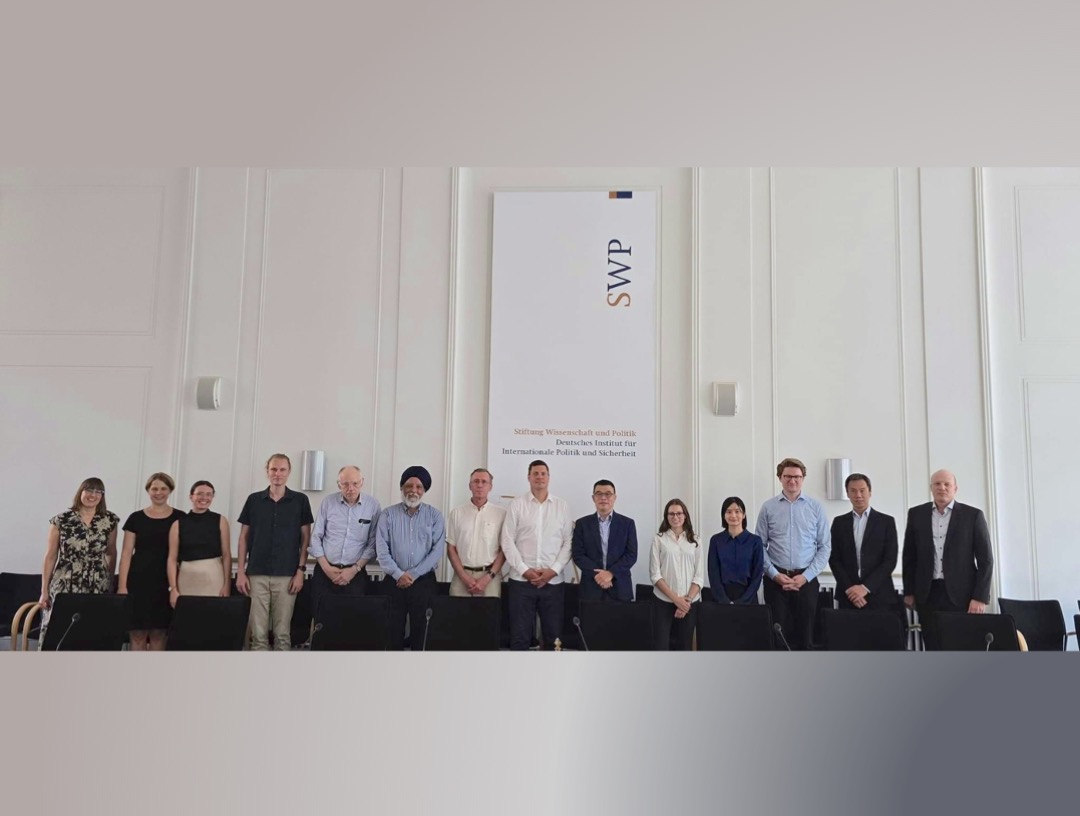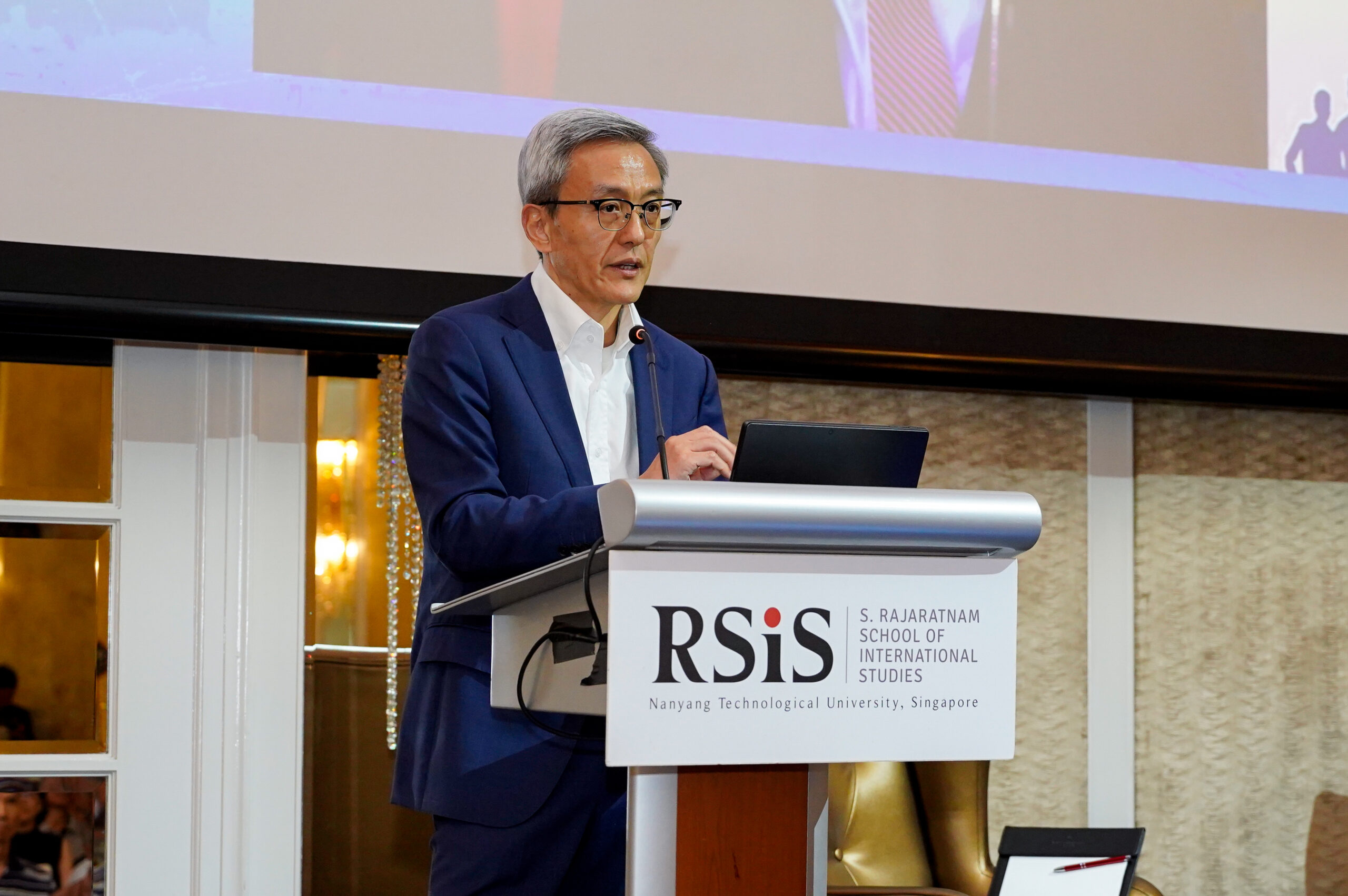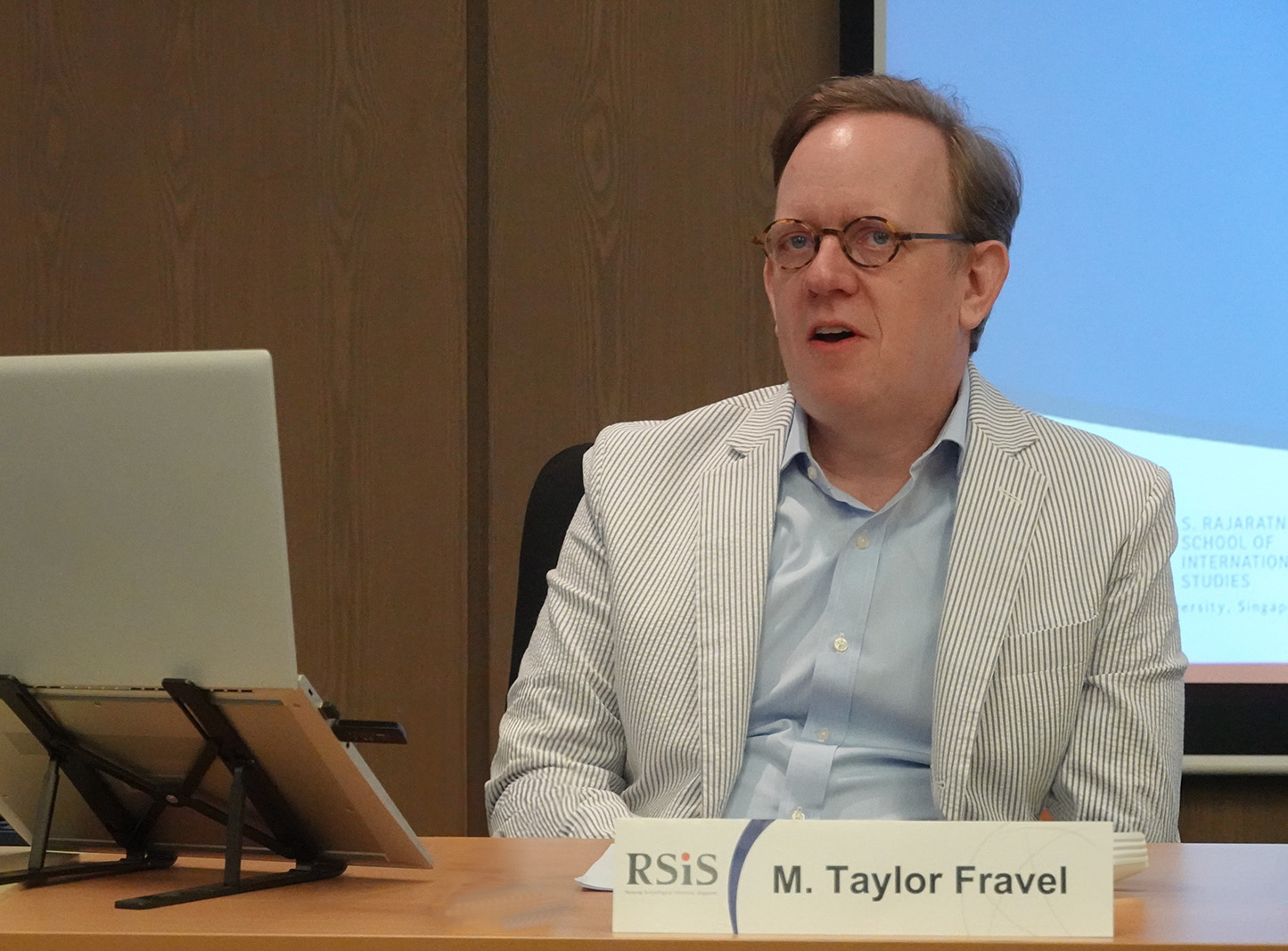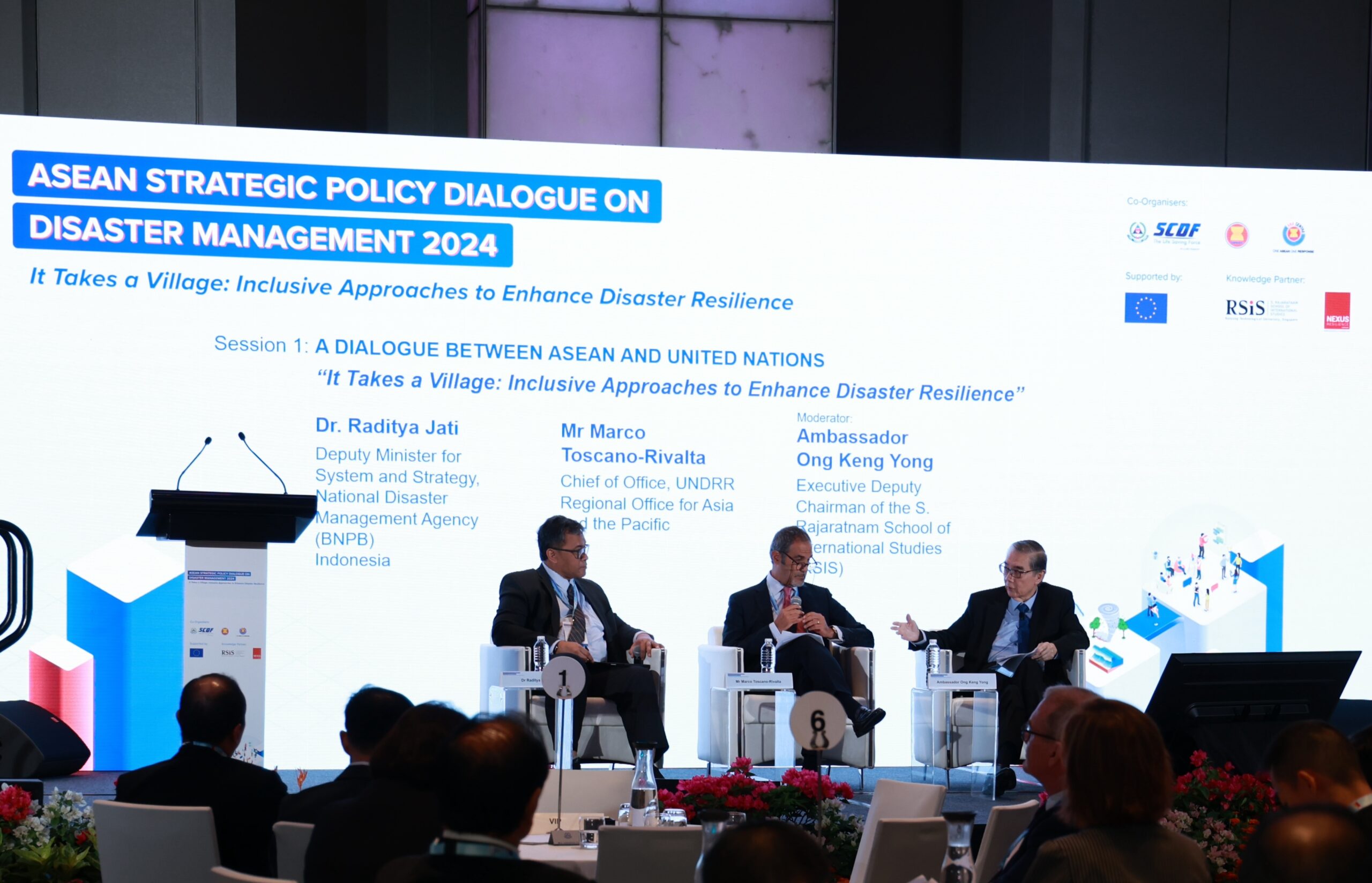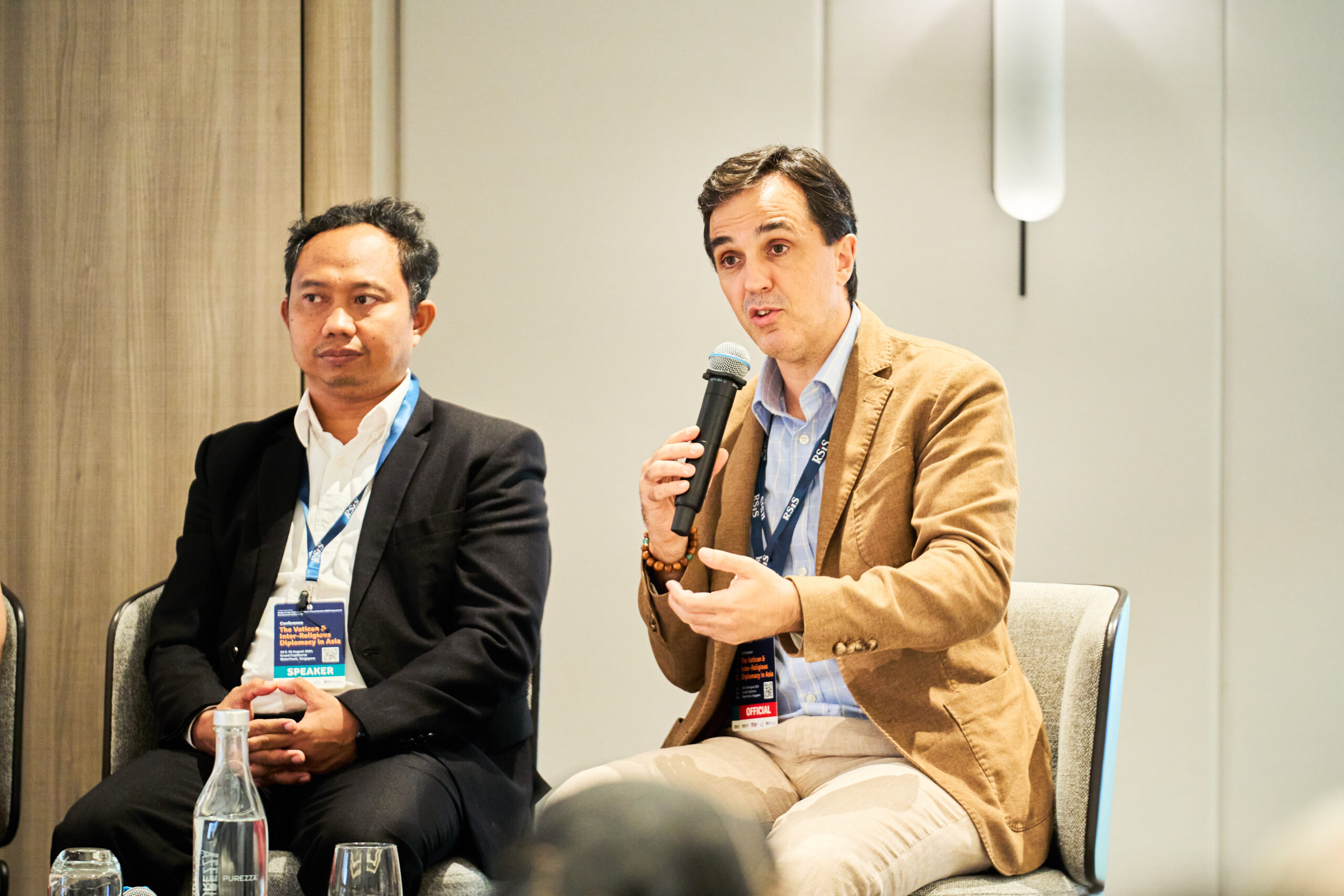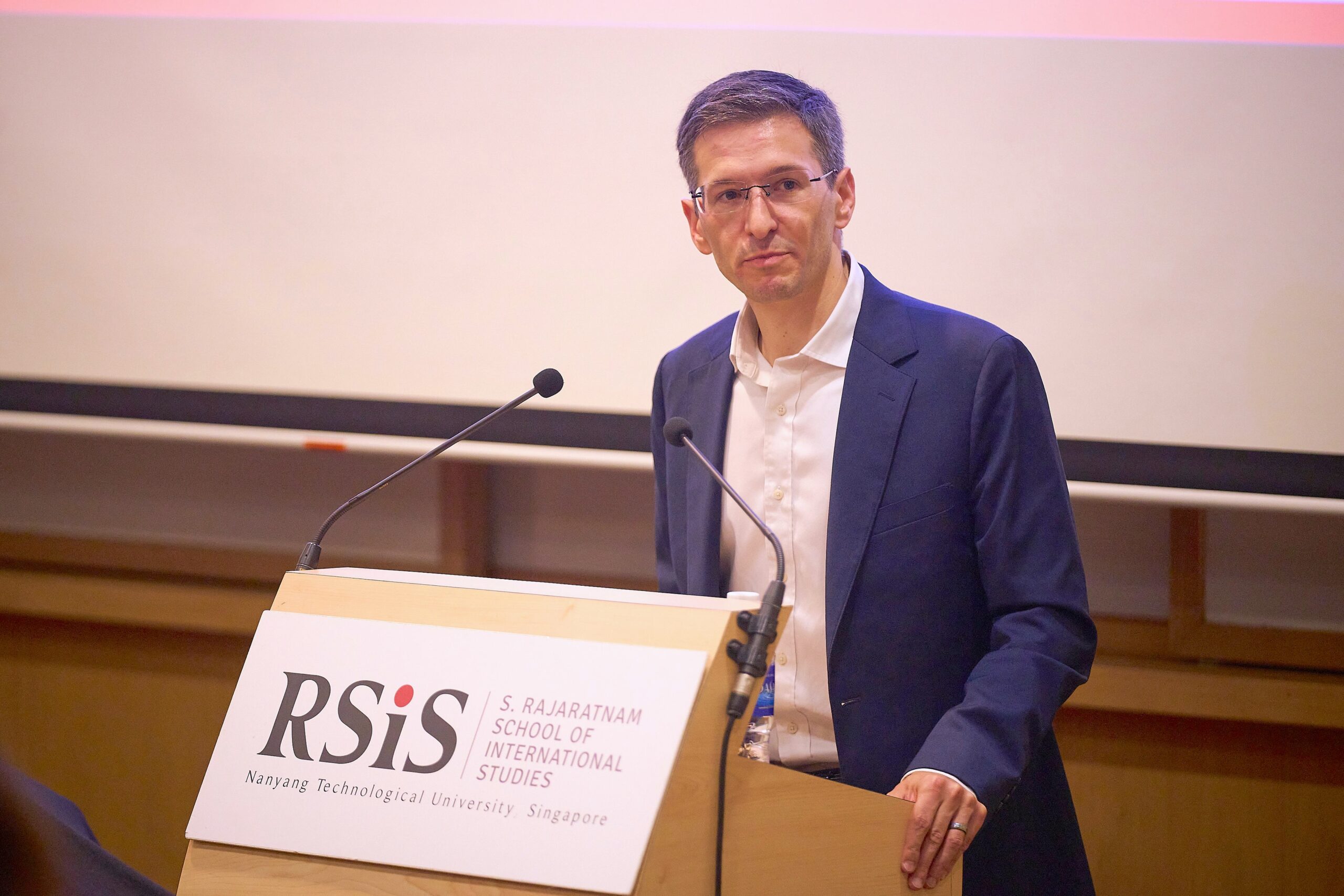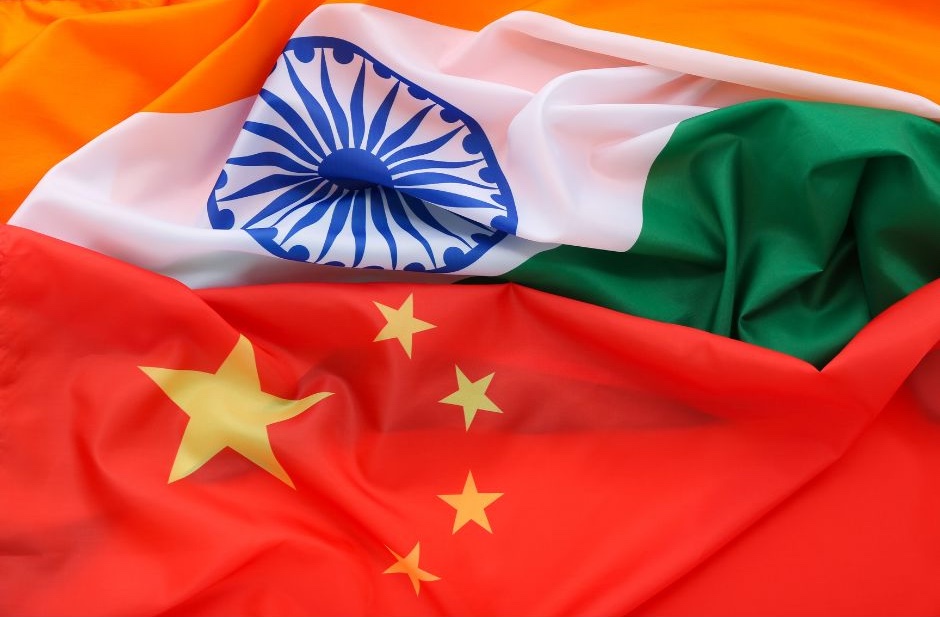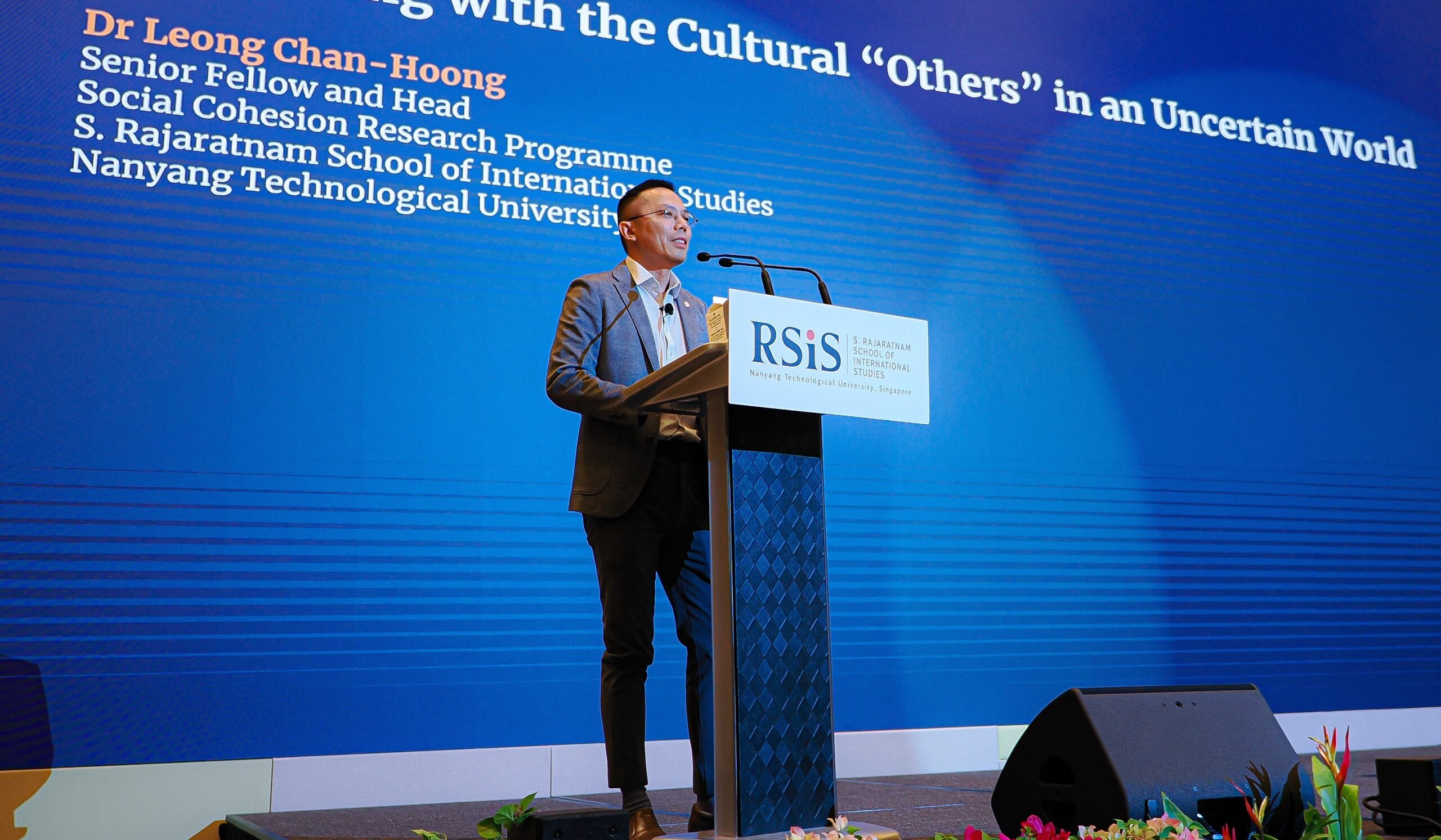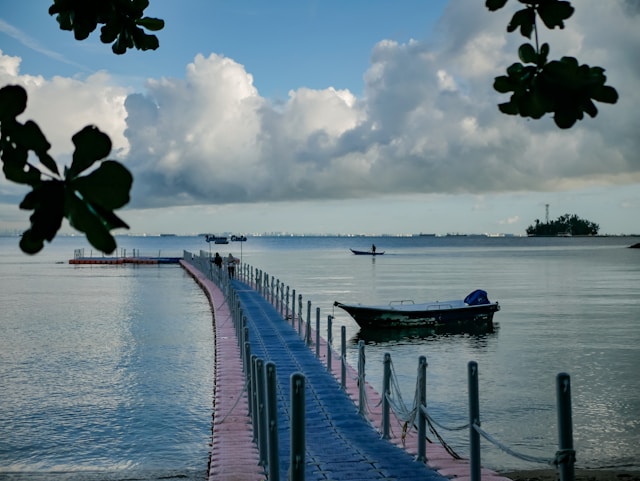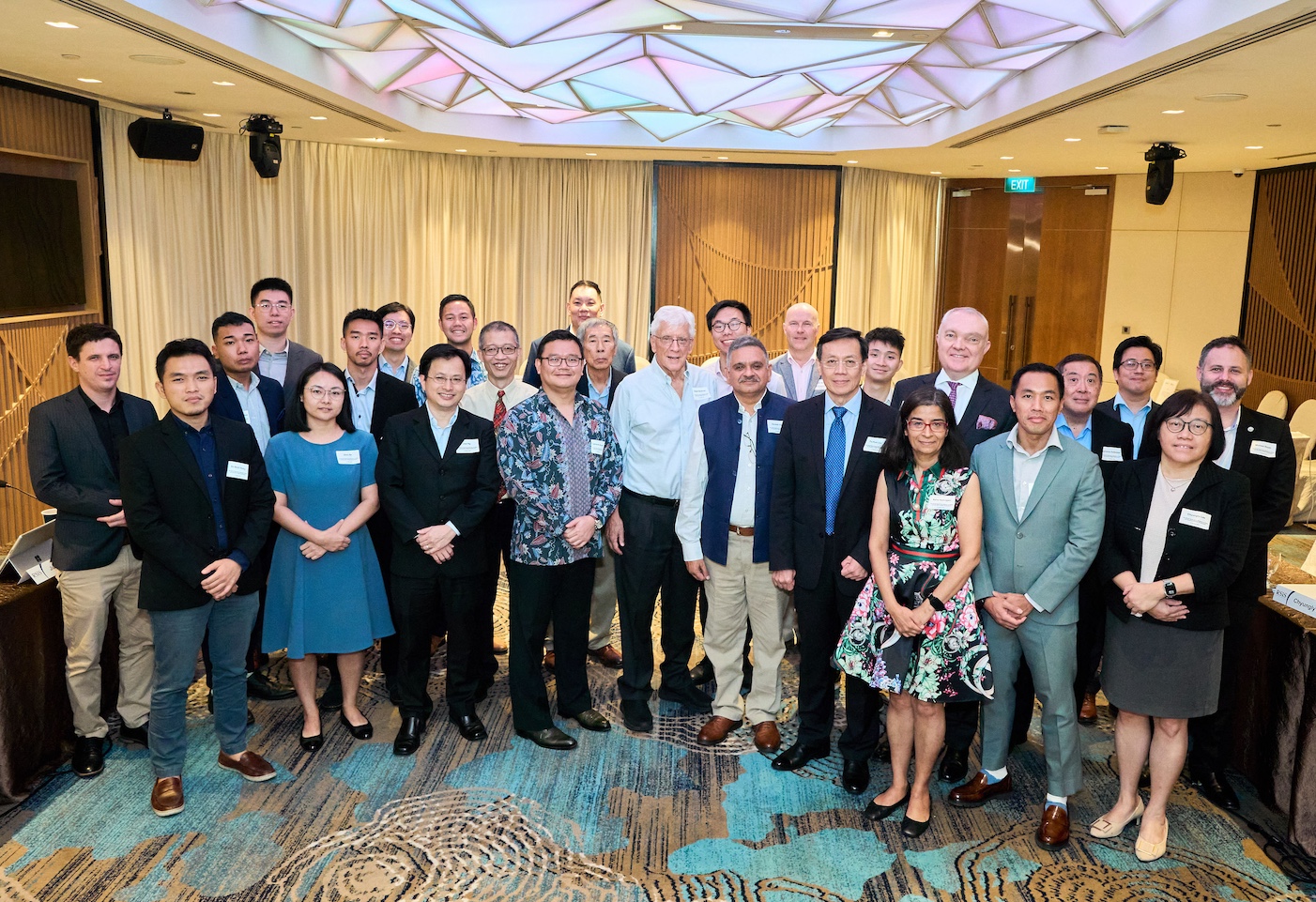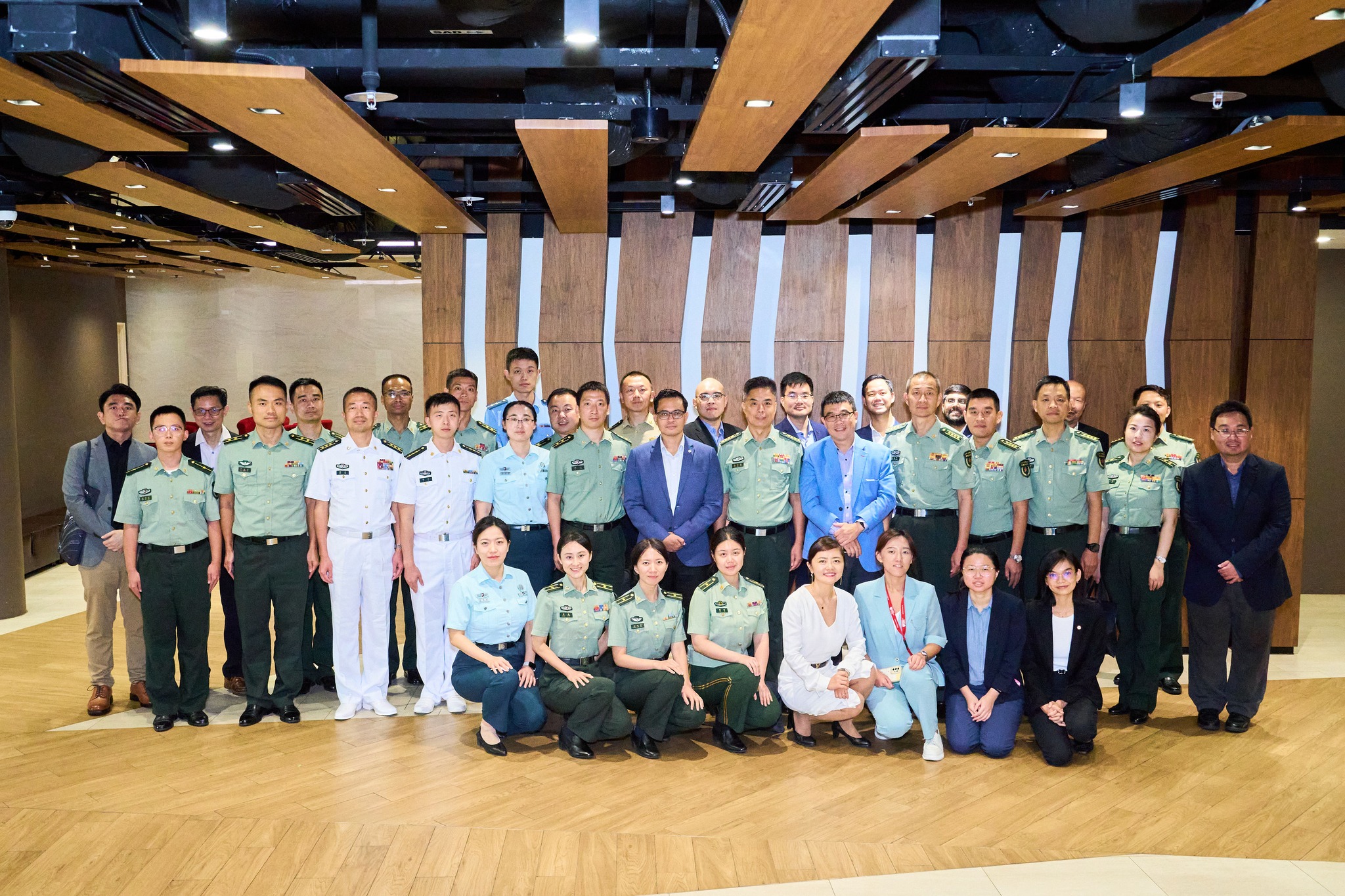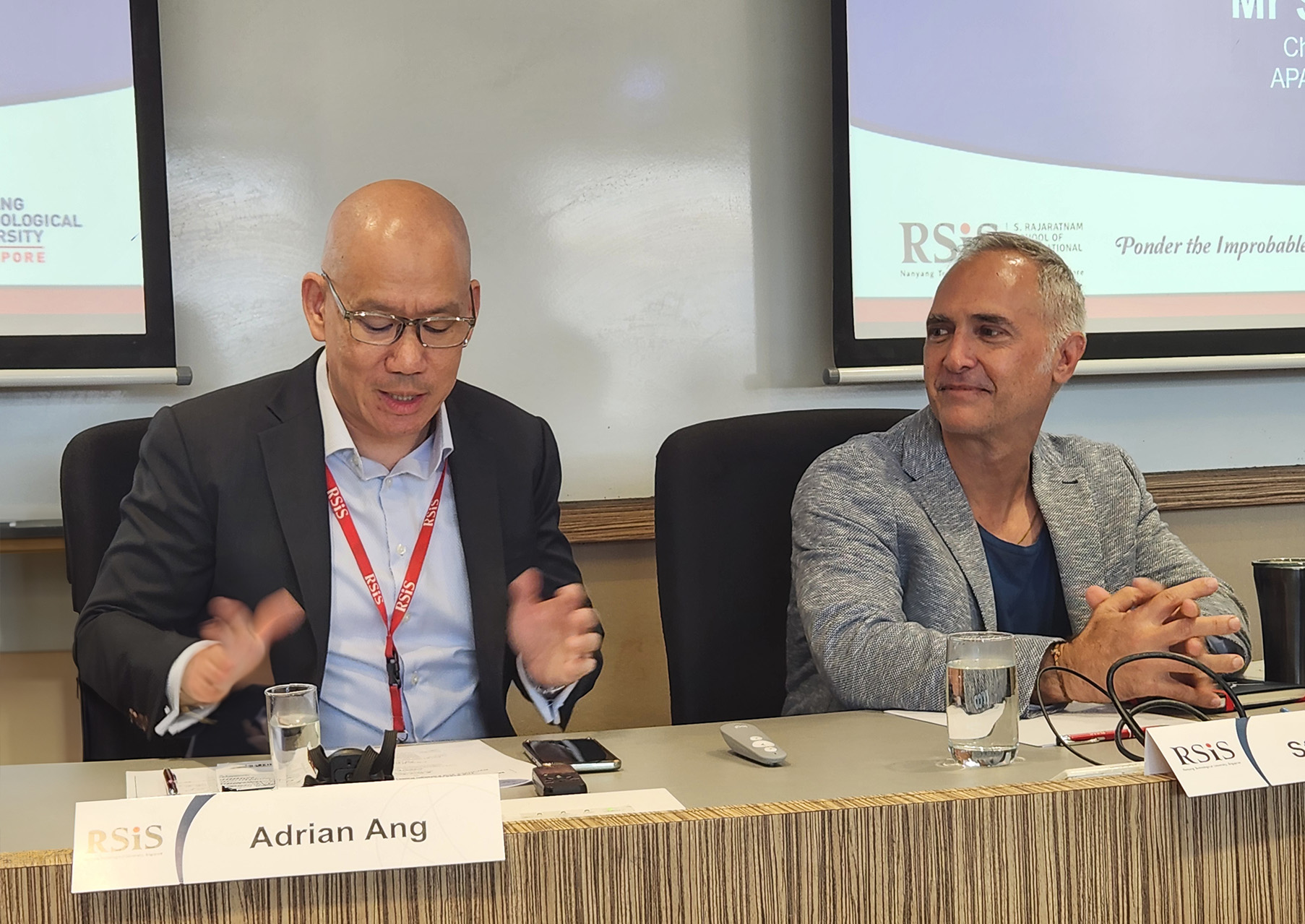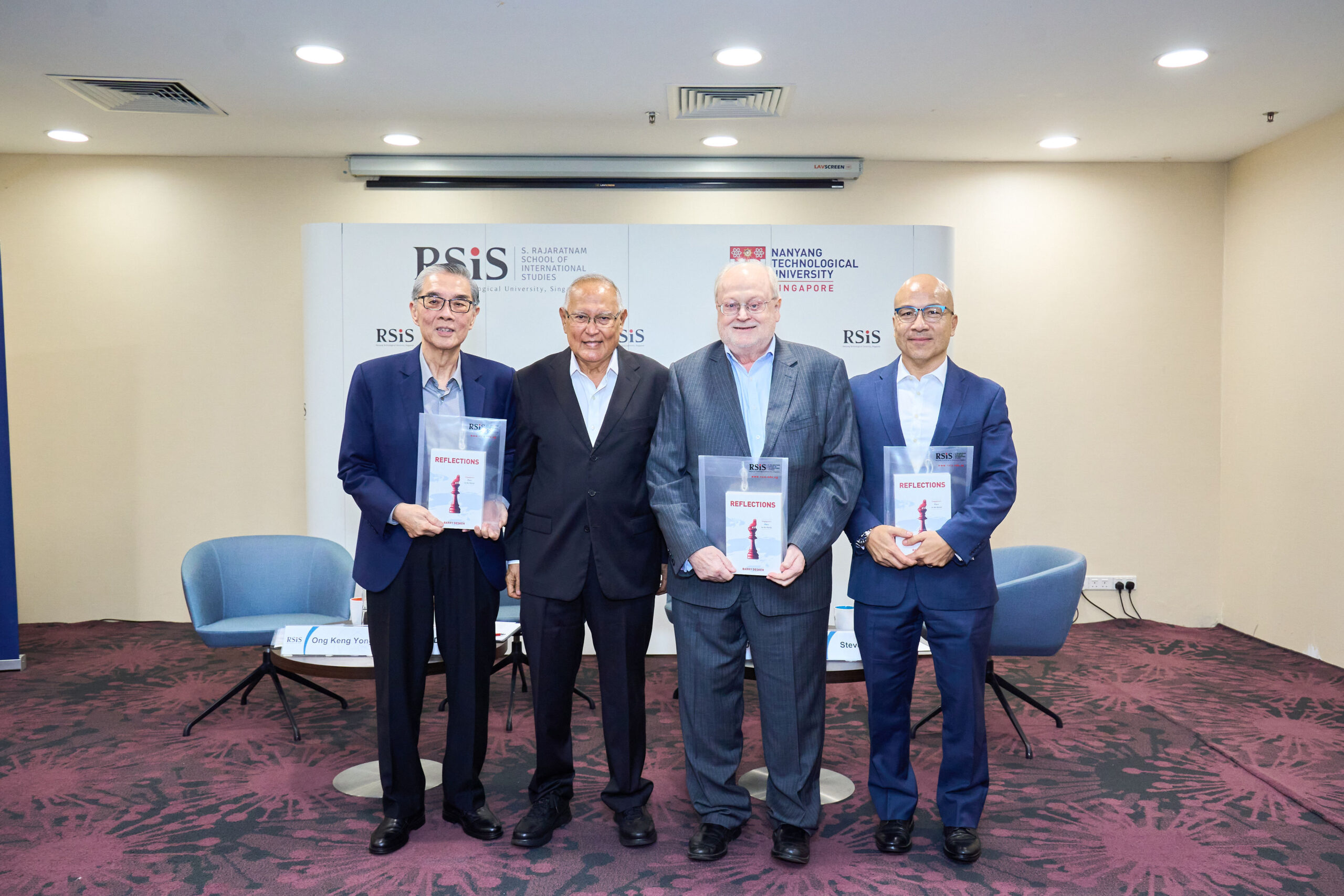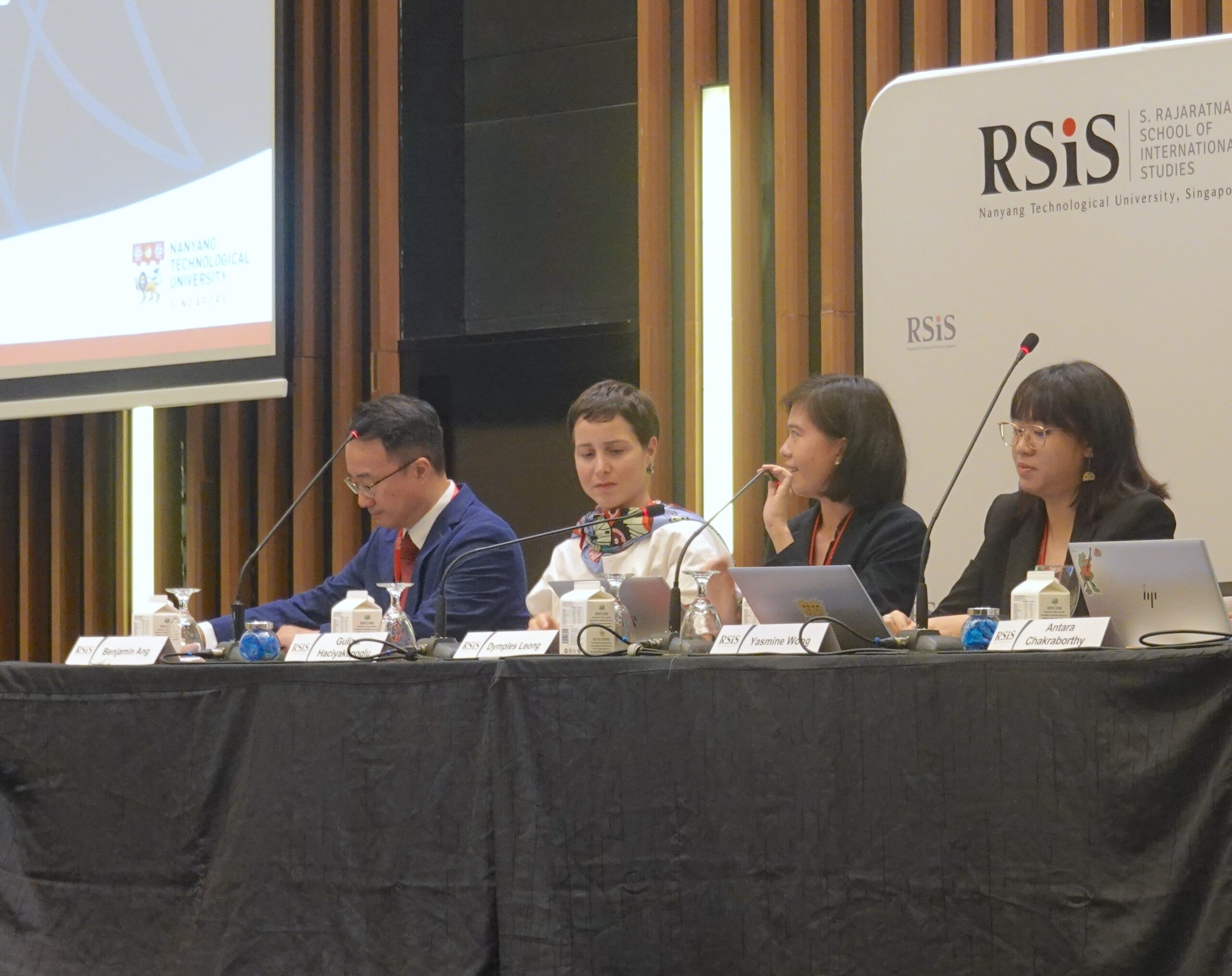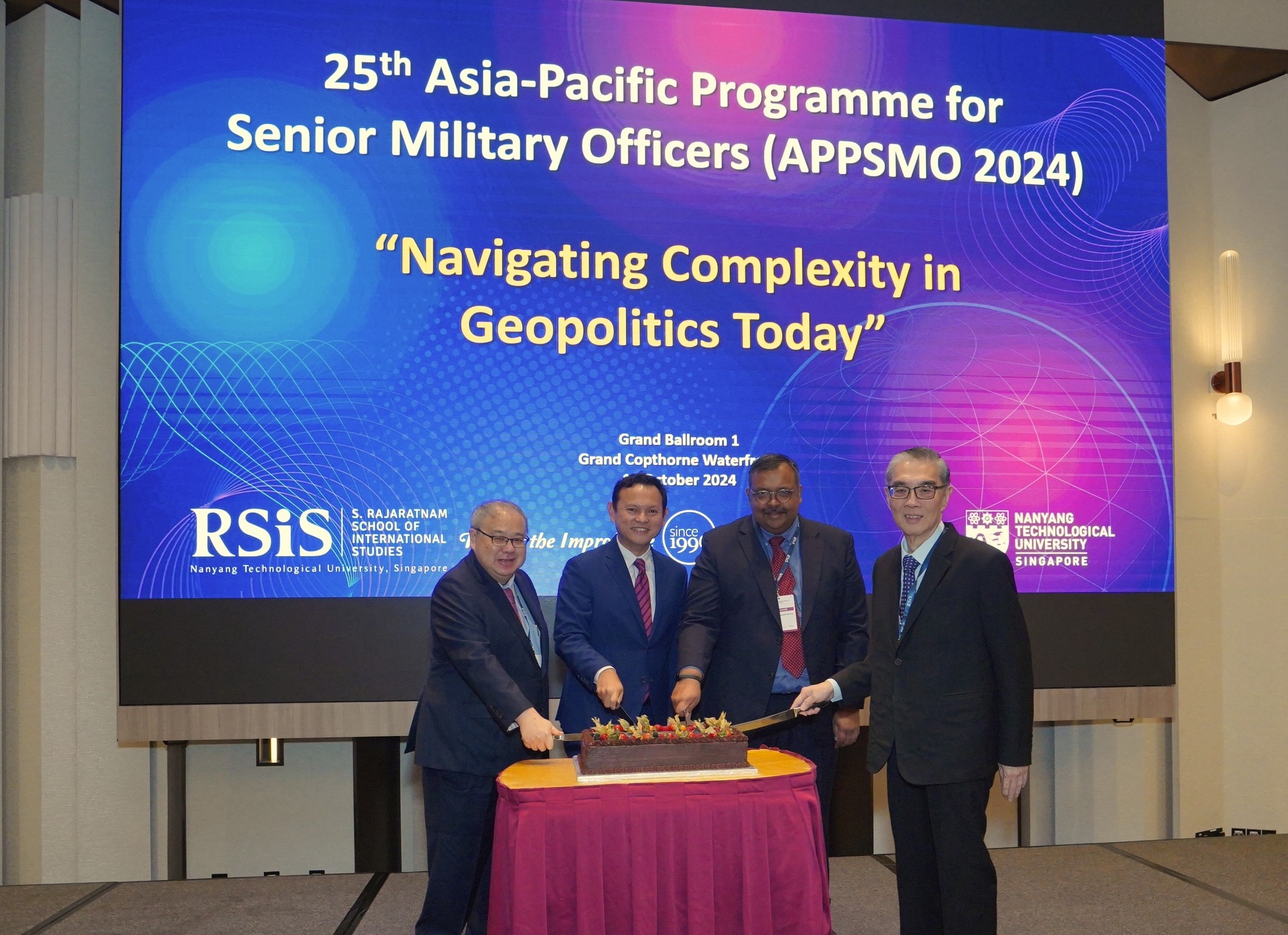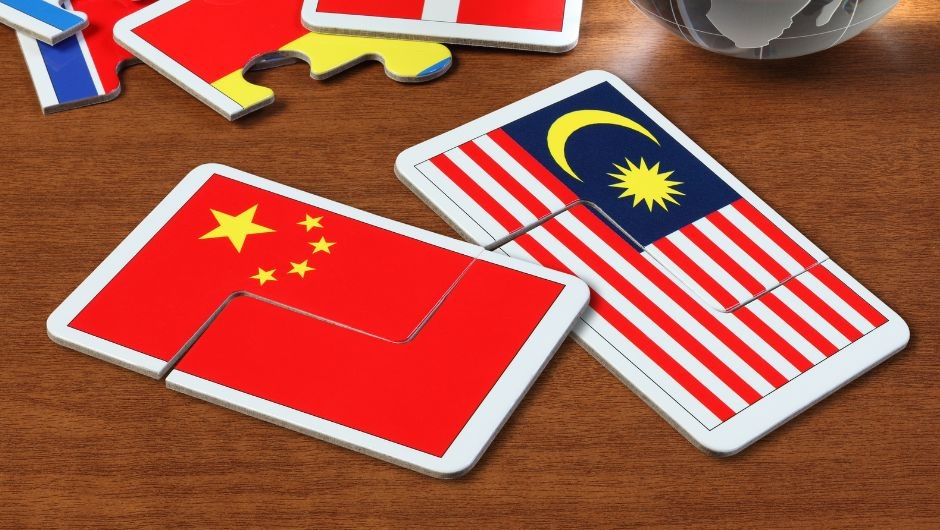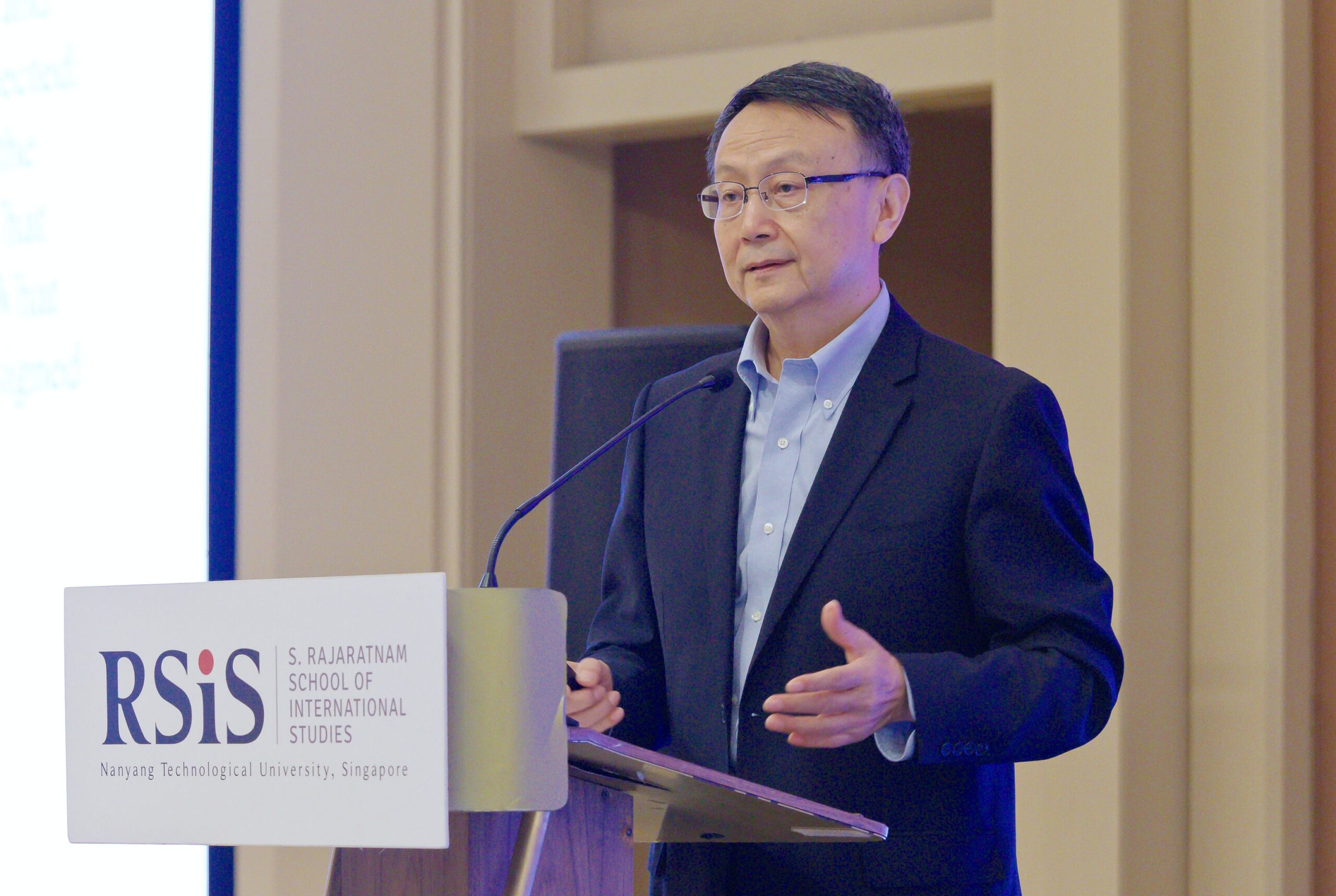
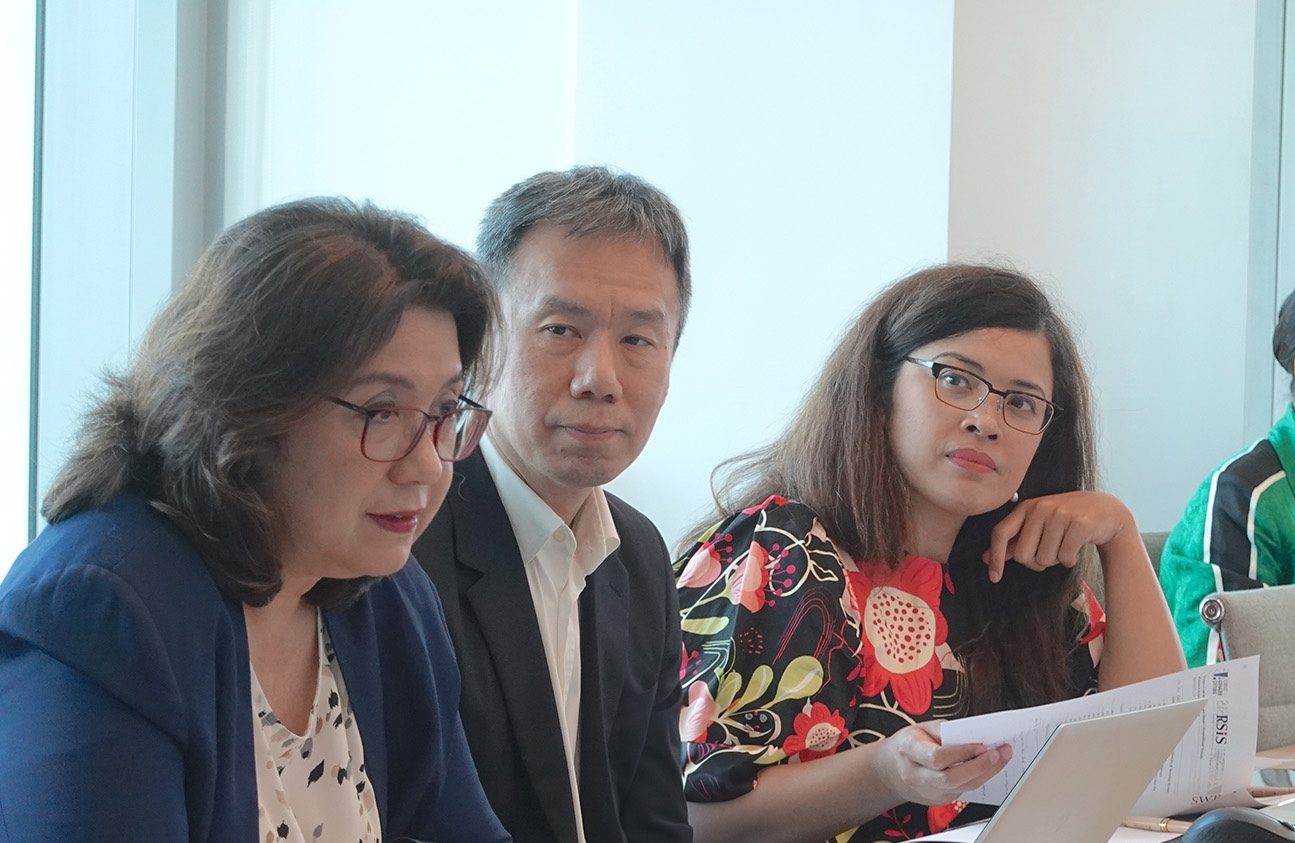
Experts discussed “The Emergence of Greater Asia in Energy and Climate” at a workshop co-organised by the Centre for Non-Traditional Security Studies (NTS Centre) at RSIS, with the German Institute for International and Security Affairs (SWP) and Konrad-Adenauer-Stiftung. Held in Singapore from 9 to 10 October 2024, the workshop brought together 20 experts in geopolitics, energy, and climate security from Europe and Asia to address one of the most pressing questions of our time: How are shifts in geopolitical power, energy policy, and climate governance reshaping Greater Asia?
Workshop participants actively contributed to academic panels, keynote debates, and policy discussions, along with foresight sessions to explore key trends, uncertainties, and potential wild cards — such as climate-induced disasters or conflicts — that could reshape the Asian energy landscape.
Energy transition is about more than just climate change for Greater Asia. While climate action is part of the agenda, technopolitics, socioeconomic development, and conflict prevention and management, are at the forefront for many actors. The control of critical raw materials for green technologies is becoming a powerful tool in the region’s geopolitics, with expectations of increased tensions and conflicts.
Prof Mely Caballero-Anthony, Head of NTS Centre, discussed major trends in energy transition, climate security and geopolitics in Southeast Asia. Mr Julius Cesar Trajano, Research Fellow at NTS Centre, delivered a presentation on the role of small modular nuclear reactors in Southeast Asia’s clean energy transition. Dr Alvin Chew, RSIS Senior Fellow, talked about Singapore’s clean energy transition.
Workshop participants explored various foresight future scenarios that may be relevant for Asia in terms of geopolitical tensions, technopolitics, resource nationalism, conflicts, worsening impact of climate change, disasters and energy insecurity issues.
Based on these scenarios, Asian countries should proactively commence exploring new energy technologies to hasten their clean energy transition. For instance, continental Southeast Asia may consider turning to nuclear power as an alternative to the Mekong River’s hydropower, especially given the region’s vulnerability to droughts. Vietnam is expected to be the hardest hit, as the Mekong River is vital to its rice production, particularly in the Mekong Delta. Meanwhile, as Laos’ dams would be severely affected, the Lao-Thailand-Malaysia-Singapore Power Integration Project (LTMS-PIP), may need to explore other clean energy sources in the future. The Mekong River Commission could also see a broader role, as it would further emphasise the importance of climate diplomacy in the Greater Mekong Subregion.
Workshop participants also accentuated the critical importance of Asia-Europe collaboration in shaping climate and energy governance and evaluated different collaboration formats between Asia and Europe. They concluded that technical cooperation, technology transfer, capacity building assistance, developmental programmes and knowledge sharing between Europe and Asia can significantly mitigate the negative consequences of the deterioration of climate and energy security in Greater Asia.




